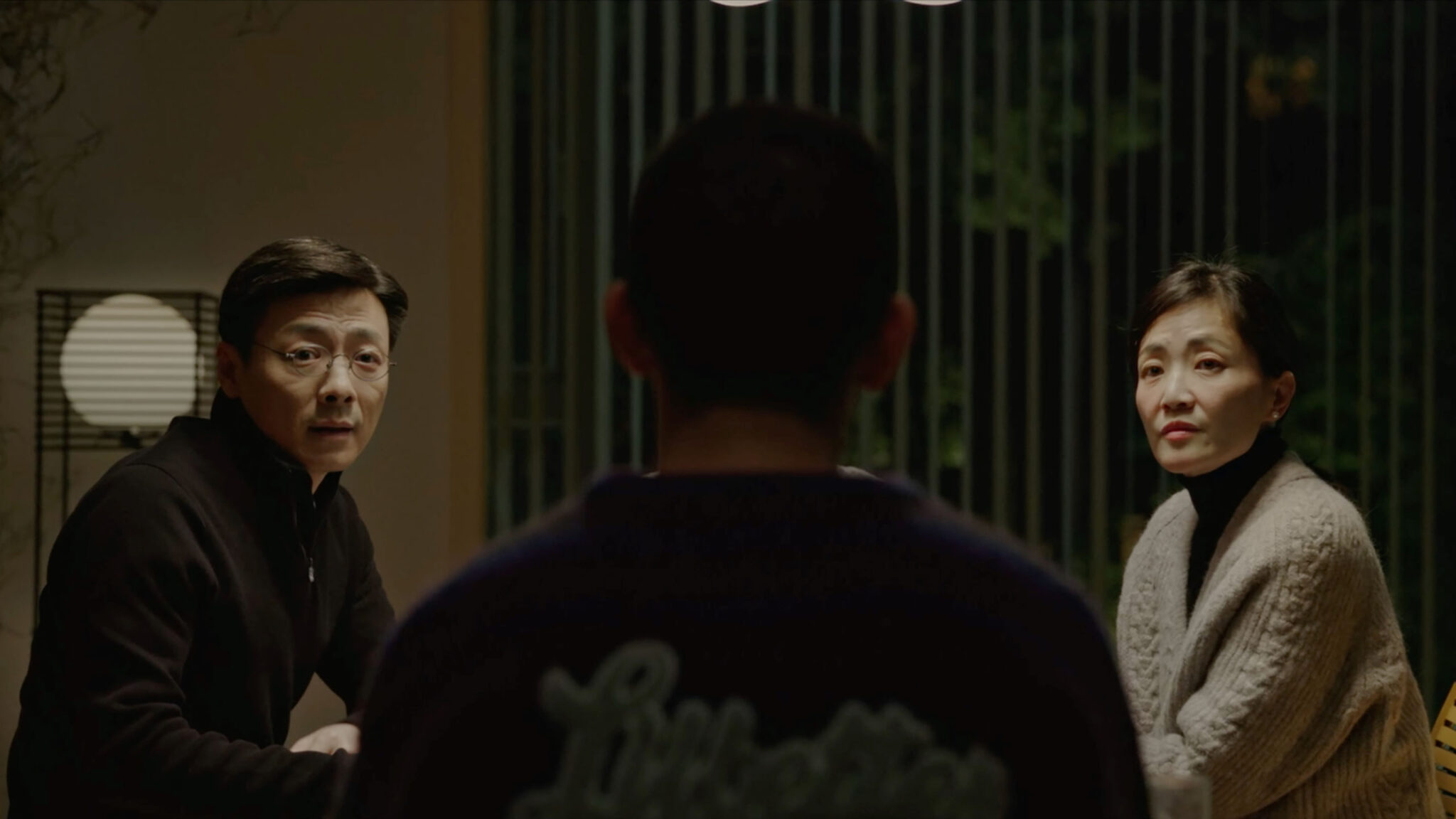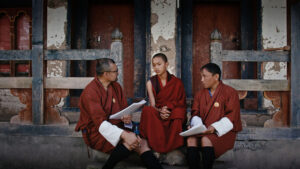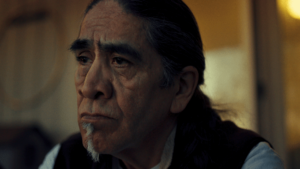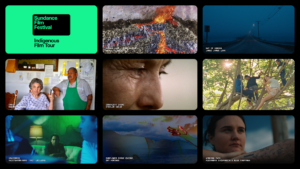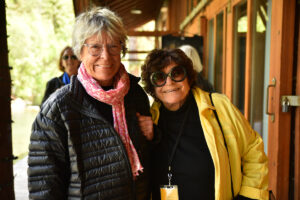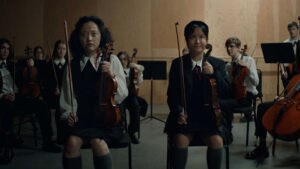By Bailey Pennick
One of the most exciting things about the Sundance Film Festival is having a front-row seat for the bright future of independent filmmaking. While we can learn a lot about the filmmakers from the 2024 Sundance Film Festival through the art that these storytellers share with us, there’s always more we can learn about them as people. This year, we decided to get to the bottom of those artistic wells with our ongoing series: Give Me the Backstory!
“The first part of my life has little to do with film,” Jianjie Lin explains when asked about how he got into filmmaking in the first place. “My study to become a biologist was going well until I was offered a chance to pursue a master’s degree at one of the best universities in China. I had an early existential crisis and started questioning my long-term commitment to the field. So I wrote a short list of new things I wanted to explore, and filmmaking was the craziest and furthest from what I did. Well, why not?”
From that bold scratch pad decision years ago, the writer-director got his MFA, made two short films, and embarked on the journey of making his debut feature. Brief History of a Family, which premiered in the World Cinema Dramatic Competition section at the 2024 Sundance Film Festival, weaves the complexities of how China is changing after the dissolving of its one-child policy through the lens of one family and the son’s blossoming friendship with another at school.
High emotions, tense rivalries, and familial struggles swirl within Lin’s inspired feature. Below hear from the artist himself about the challenges of making Brief History of a Family, why this story needs to be told now, and his favorite recent Sundance films.
What was the biggest inspiration behind this film?
There [were three main inspirations for the film. First] was my interest in the concept of family. Every family is an intimate unit that functions following codes and rituals of their own. They are also very good at keeping a facade. But if you look closer, quite often you will discover something unexpected.
[Next, there] was a big social change [in China]. For over 30 years, the one-child policy has left a mark on millions of Chinese families who have lived through that era. Now it is possible to have another child, how will the new policy alter the mentality of the only child and the parents?
There was [also] an urge for formal exploration. To take a story rooted in reality to a deeper, allegorical level, to play with genre codes.
When the three met, the film was born.
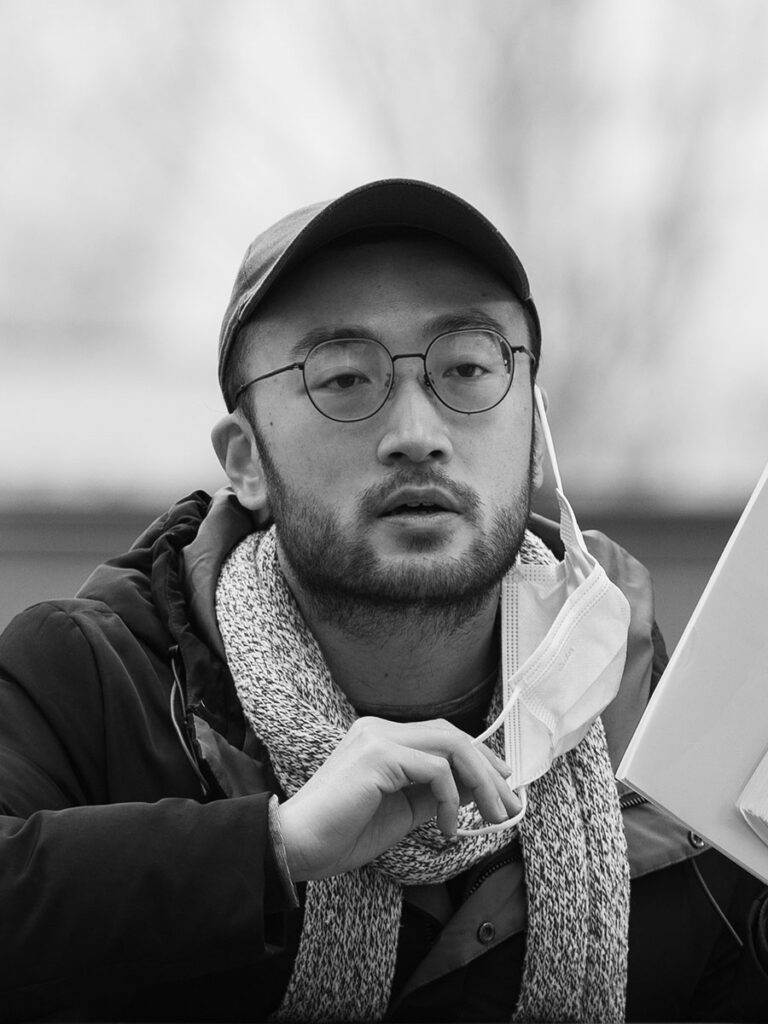
Describe who you want Brief History of a Family to reach?
As many as possible internationally. While it is a film featuring a Chinese middle-class family, I had this idea that the film is for an international audience since the very beginning.
Why does this story need to be told now?
There is a new and unfamiliar side of China people don’t see much in cinema.
Your favorite part of making the film? Memories from the process?
Finding the right tone for the film. It is an ongoing process from script to post-production. It is always inspiring, just like doing experiments. I needed to balance different elements: actors, location, camera movements, editing, music, sound… I kept these questions in mind during the process: Just how far do we stray into genre territory without falling into cliche? Just how much do I indulge the stylistic approach while staying close to the characters?
And, like a living being, the film keeps evolving — from something very realistic to something akin to an atmospheric psychological thriller.
What was a big challenge you faced while making Brief History of a Family?
Financing. The market for independent and arthouse films in China has been shrinking even more because of Covid. After some years of unsuccessful attempts to get the film financed by some established studios in China, it became clear to us that in order to make the film I envisioned, we had to do it the independent way.
That means we had to cut down the budget while piecing together funds from different sources, China and abroad. I had to go back to the script and make changes and remove things, then planned a co-production strategy that has never been done before for a Chinese language film. It still took a lot more to get the film made.
Now looking back, restraints can be tough. But they also force you to think outside the box creatively.
How do you want people to feel after they see your film?
I hope they get to immerse themselves in the film. Afterward, the film stays with them emotionally and intellectually.
If you weren’t a filmmaker, what would you be doing?
Probably something related to genetics while writing in my free time.
Early bird or night owl?
I keep telling myself to be an early bird. One day I will listen.
Films are lasting artistic legacies, what do you want yours to say?
A good film can say different things to different people. I’d be happy if this film lasted long enough to inspire different people.
What is something that all filmmakers should keep in mind in order to become better cinematic storytellers?
Don’t make films you don’t want to see. Don’t make films only you want to see.
What’s your favorite film that has come from the Sundance Institute or Festival?
In recent years, there are Kajillionaire, A Ghost Story, Get Out, and Velvet Buzzsaw.

